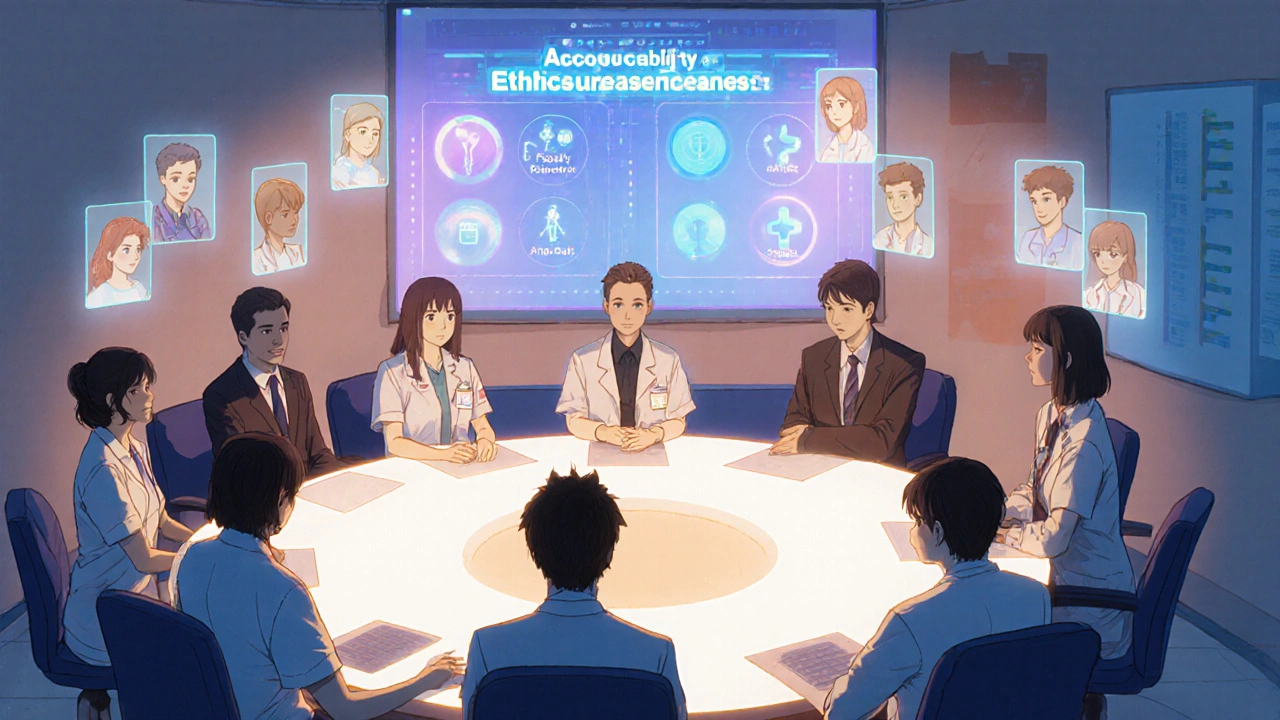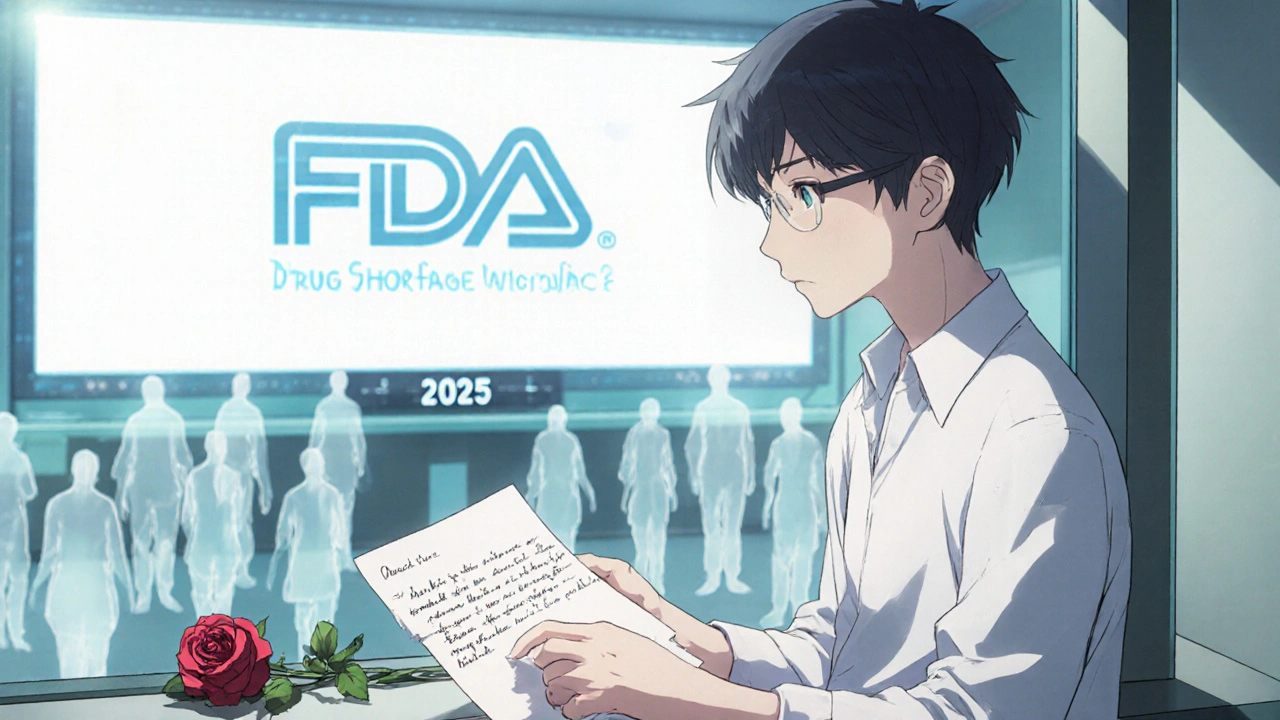When a life-saving drug runs out, who gets it? This isn’t science fiction. It’s happening right now in hospitals across the U.S. In 2023, there were over 300 active drug shortages, with cancer drugs like carboplatin and cisplatin in critically short supply. Oncology centers reported that 70% of patients faced delays or substitutions because the medication simply wasn’t there. When there’s not enough to go around, doctors and pharmacists don’t just guess who gets treated. They follow ethical frameworks-structured, sometimes painful systems designed to make tough choices as fair as possible.
Why Rationing Is Happening Now
Drug shortages aren’t new, but they’ve gotten worse. In 2005, there were 61 reported shortages. By 2023, that number jumped to 319. The biggest culprits? Generic injectable drugs, especially those used in cancer care, intensive care, and emergency medicine. Why? Because just three companies make 80% of these drugs. If one factory has a quality issue, or a raw material shipment gets delayed, the entire country feels it.What Ethical Rationing Actually Looks Like
Rationing isn’t about picking patients randomly. It’s about using clear, agreed-upon rules so no one gets special treatment because of who they know or how loud they are. The most respected framework comes from bioethicists Daniel and Sabin, called accountability for reasonableness. It has four rules:- Publicity: Everyone must know how decisions are made.
- Relevance: Decisions must be based on medical evidence, not personal bias.
- Appeals: Patients or families can challenge a decision if they think it’s unfair.
- Enforcement: Someone has to make sure the rules are followed.
How Hospitals Decide Who Gets the Drug
Different groups use different criteria. The American Society of Clinical Oncology (ASCO) recommends focusing on:- Urgency: Who needs it right now to survive?
- Chance of benefit: Who’s most likely to respond?
- Duration of benefit: Who will live longer with this treatment?
- Years of life saved: Who has the most life ahead of them?
- Instrumental value: Should frontline workers get priority if they’re needed to save others?

The Problem With Bedside Decisions
Too often, the decision falls to one doctor on a busy shift. A 2022 study found that over half of rationing decisions were made at the bedside, without any committee or oversight. That’s dangerous. It leads to inconsistency. One oncologist might give the last dose to a younger patient. Another might give it to someone who’s been on treatment longer. Both could feel they’re doing the right thing-but the system fails. When decisions are made alone, clinicians report higher burnout. One oncologist on an ASCO forum said she had to choose between two stage IV ovarian cancer patients for a single dose of carboplatin-three times in one month. No guidelines. No support. Just guilt.Committees Work Better-But Rarely Exist
Hospitals with formal ethics committees that include pharmacists, nurses, doctors, social workers, and ethicists make fairer decisions. A 2022 JAMA study showed these committees reduced allocation disparities by 32%. They also cut clinician moral distress by 41%. So why don’t more hospitals use them? Only 36% of U.S. hospitals had standing shortage committees in 2018. Even fewer included ethicists-just 2.8%. Rural hospitals are even worse off. Two out of three lack any formal plan. And when a shortage hits, it can take 14 to 72 hours to get a committee together. In emergencies, that’s too long.Patients Are Often Left in the Dark
Here’s one of the most troubling facts: only 36% of patients were told their treatment was being rationed. That means two out of three people were making decisions based on incomplete information. Some were told, “We’re changing your protocol.” Others weren’t told anything at all. The Patient Advocate Foundation collected 127 formal complaints about undisclosed rationing. People felt betrayed. They trusted their doctors. When they found out the drug was gone-and they weren’t told-they lost faith in the system. ASCO’s 2023 update now insists: patients must be informed. Not just told “there’s a shortage,” but given a clear explanation of what’s happening, why, and what alternatives exist.
What’s Being Done to Fix This
There’s progress. The FDA launched a Drug Shortage Task Force in 2023, aiming to use AI to predict shortages before they happen. The goal? Cut shortage duration by 30% by 2025. ASCO also released a free online decision tool in May 2023 to help oncologists navigate allocation. The CDC updated its Crisis Standards of Care toolkit. And the National Academy of Medicine is developing standardized ethical metrics-expected in early 2024. But the biggest step forward? The American Society for Bioethics and Humanities is launching certification for hospital rationing committees in January 2024. Hospitals that meet the standard will be officially recognized. That’s the first time there’s a real benchmark for ethical practice.What You Can Do
If you or someone you love is undergoing treatment with a drug known to be in short supply, ask:- Is this drug part of a current shortage?
- Is there a formal committee making allocation decisions here?
- Have you been told about the shortage and how decisions are made?
- Are there alternatives? What are the risks and benefits?
The Bigger Picture
Medication rationing isn’t just about drugs. It’s about values. Do we believe every life has equal worth? Or do we accept that some people get left behind because the system is broken? Right now, the system is failing. But it doesn’t have to be. The tools exist. The ethics are clear. What’s missing is consistent action. Until every hospital has a committee, a plan, and the courage to be honest with patients, we’re not just managing shortages-we’re ignoring a moral crisis.Is medication rationing legal?
Yes, but only under strict ethical guidelines. Rationing isn’t about denying care-it’s about allocating scarce resources fairly when supply can’t meet demand. In the U.S., it’s guided by professional ethics standards from groups like ASHP and ASCO. Without a formal framework, however, rationing becomes arbitrary and potentially unlawful under civil rights protections.
Who decides who gets the drug during a shortage?
In well-run hospitals, a multidisciplinary committee makes the decision-not individual doctors. The committee includes pharmacists, nurses, physicians, social workers, ethicists, and sometimes patient advocates. This prevents bias and ensures decisions follow established criteria like urgency, likelihood of benefit, and fairness. In hospitals without committees, decisions often fall to individual clinicians, which leads to inconsistency and moral distress.
Are patients told when their treatment is being rationed?
Too often, no. Studies show only about 36% of patients are informed that their medication is being rationed. This lack of transparency erodes trust. Leading ethics groups now insist patients must be told clearly, honestly, and compassionately-not just that there’s a shortage, but how decisions are made and what alternatives exist.
Why are cancer drugs like carboplatin so often in short supply?
Cancer drugs are mostly generic injectables made by just a few manufacturers. If one factory has a quality control issue-or if raw materials are delayed-the entire supply chain breaks. These drugs are also complex to produce and have low profit margins, so manufacturers don’t invest in backup production. That’s why a single disruption can affect 70% of U.S. cancer centers.
Can I get a different drug if mine is in short supply?
Sometimes. But not always. Alternatives may be less effective, more toxic, or more expensive. For example, if carboplatin is unavailable, cisplatin might be used instead-but it causes more kidney damage and nausea. Doctors weigh risks carefully. The goal is to match the closest possible therapeutic effect, not just substitute any available drug.
How can hospitals improve their rationing systems?
Hospitals need to build standing ethics committees with clear protocols, train staff on ethical frameworks, and document every allocation decision. They should use tools like the ASCO decision support system and track outcomes-like patient communication rates and clinician burnout. The goal is to move from crisis reaction to prepared response. Certification programs launching in 2024 will help standardize this.

8 Comments
so like... uhhh... i think the real issue is the gov't letting 3 companies control all the injectables? like why tf is this even legal?? i heard the fda gets bribes from big pharma to ignore factory violations. they're just letting people die so profits stay high. i saw a leak once where a exec said "better them than our quarterly numbers". i'm not crazy, i swear.
this made me cry 😭 i have a cousin going through chemo right now and they just told her they're switching meds "for logistical reasons". she didn't even know it was a shortage. i'm so mad. we need to push hospitals to be honest. no more sugarcoating. people deserve to know.
This is what happens when you let the weak-minded, overregulated, politically correct American healthcare system collapse under its own weight. In Ireland, we don't have these problems because we don't allow profit-driven monopolies to dictate life-or-death decisions. The U.S. is a laughingstock. If you can't handle scarcity, you shouldn't be running a medical system.
Oh please. Let's not pretend this is about "ethics." It's about who you know, who screams loudest, and who has the best insurance. The "accountability for reasonableness" framework? That's a PR brochure. I've seen oncologists quietly give doses to their golf buddies while telling a single mom her kid "has a lower chance of benefit." The system is a theater. The only thing that matters is connections. And don't even get me started on how they lie to patients like they're children. Pathetic.
Thank you for this thorough and deeply important piece. The ethical frameworks outlined here are not merely theoretical-they are lifelines for clinicians facing impossible choices. The data on moral distress and patient mistrust is staggering. I urge every healthcare institution, regardless of size, to prioritize the formation of multidisciplinary allocation committees. Transparency is not optional-it is a moral imperative.
I work in oncology pharmacy and this is 100% real. We had to split a vial of cisplatin between two patients last month because the next shipment was delayed 3 weeks. We documented everything but nobody told the families. It broke my heart. The ASCO tool helped but we need more staff not more guidelines. Hospitals are understaffed and overworked and patients are paying the price
This is why I support the new certification program launching in Jan 2024 🙌 finally someone's making hospitals accountable. I’ve seen too many people lose trust because they weren’t told the truth. If your hospital doesn’t have a shortage committee, ask for one. And if they say "we don’t have time"-tell them time is exactly what they’re wasting. 💪
India makes 80% of the world's generic drugs and you Americans still can't fix this? You rely on us for your medicine and then act like you're the only ones who care about ethics? We have rationing too but we don't make it a drama. You need to fix your supply chain not blame the system. Also stop pretending your hospitals are so moral when half of them won't treat uninsured people at all
Write a comment